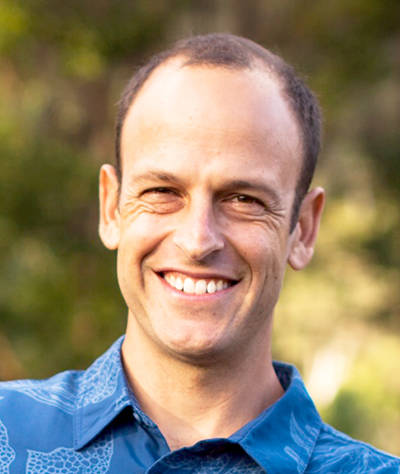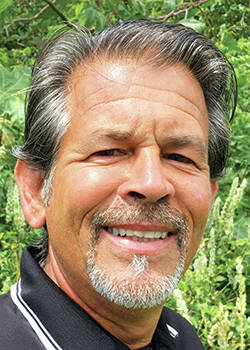LIHU‘E — During the last year, the need to have reliable access to internet and a computer became the standard for communication, attending school and access to social services and health care.
But not everybody has that access. That was made clear during the pandemic.
Wednesday, the County Council made a commitment, through a resolution, urging the development of broadband infrastructure in support of closing the digital divide during the COVID-19 recovery period. Councilmembers Luke Evslin and Billy DeCosta introduced the measure that passed unanimously.
The resolution, Evslin said, recognizes that not only are there “vast inequities” in internet access across the county, but these issues were highlighted throughout the COVID-19 pandemic.
“One of the main drivers to inequitable access (is that) a lot of companies (offering) broadband service are for-profit companies,” Evslin said, noting that broadband infrastructure can be expensive, and these groups may not have the ability to pay off the investment of constructing rural infrastructure.
“In our rural areas especially, there’s no financial incentive for companies to invest. That internet service is weak or poor, and still pay the same price as everyone else,” DeCosta said. “Let’s not forget when our cable got severed and we had a blackout on Kaua‘i. Our infrastructure is almost at life span.”
According to a 2019 American Community Survey, 9.5% of the state have no internet subscriptions, and 7% don’t have a computer. Further, 8.7% of Native Hawaiian and Pacific Islanders don’t have internet subscriptions.
The October 2020 Hawai‘i Broadband Strategic Plan from the state Department of Business, Economic Development and Tourism declared that broadband critical infrastructure needs to be a public- and private-sector priority for the state’s economic future and quality of life of its residents.
During his State of the State Address in January, Gov. David Ige pushed for a digital economy with a Hawai‘i 2.0 campaign, and announced a pilot project through the state Department of Transporation to connect rural communities to broadband service, including Kapa‘a.
Through the resolution, the county becomes a signatory of the Digitial Equity Declaration from the Broadband Hui, a group formed during the pandemic by DBEDT, the Economic Development Alliance of Hawai‘i and Transform Hawai‘i Government. The county joins the City &County of Honolulu as well as Maui and Hawai‘i Island as signatories.
Some objectives of the state’s plan outline trans-Pacific and inter-island fiber-optic cables and rural broadband as well as wireless-broadband deployment.
Councilmember Felicia Cowden’s motion to defer the resolution to allow further discussion and for more community feedback died with a split vote amongst members.
“I would like many people to be excited about (this resolution) instead of just finding that it happened and it’s over,” Cowden said.
•••
Sabrina Bodon, public safety and government reporter, can be reached at 245-0441 or sbodon@thegardenisland.com.







[…] Source hyperlink […]
Just when you think you’ve heard it all…along comes digital equity??? What a load of pucky. But what else is to be expected from these dull witted progressives?
Just who gets to pay for this “equity”? Hey, Lukey, while you’re at it what about Porsche equity…I would love one of those too.
RG DeSoto
I hope no one out there is praising these people for this idea… which should have been established a good 10-15 years ago if not more. IDK Why not all schools are not already on a linked system. For those of us who have had to fill out 8-10 forms at the beginning of every school year (PER CHILD) (PER TEACHER) because the school can’t provide the teachers with our phone number and address is just beyond me. How am I not shocked the Hawaii school system ranks so low in the nation. Our schools are beyond out of date and it’s obviously because we like to waste our money on raises for idiots & stupid made up programs that only benefit the politicians and people they know. Someone needs to come along and run for Governor or Mayor that doesn’t win based on their finances and who they know.
I concur….. Should have happened in all schools and public places and the resolution is really of no consequence…. So no worry Felicia, we finally have something to read about that already happened that doesn’t mean a thing!!!!
I have suggested for decades that we give all people the opportunity to work remotely like the tiny island nation NIUI did over 20 years ago…..
But the rich of Hawaii have a method of getting richer by squashing equal access to education and gainful employment in order to treat the poor like filthy animals standing in lines for handouts and more abuse.
The dogs at Kauai Humane Society have a brighter future that most of our local kids!!!!
What about the island-wide fiber-optic system installed several years ago by (I believe) Sandwich Isles Telecom to serve the Hawaiian Homes community? The Kauai system runs from Anahola to Kekaha as I recall. Could this be utilized for the “broadband equity” purpose?
In short, yes. That cable is vastly underutilized and was a ridiculous waste of money.
Luke and some of his fellow council members sure know how to waste a lot of time and energy on things that relate to a minimal number of people. Last year his loony property tax changes kept the council and staff engaged for months, but only impacted less than 500 properties. Less than 10% of people without computers or internet access does not warrant all this hand wringing and government intervention. Some people want to live “off the grid”.
Us rural folk who, when really need to be on line, figure out a way to do it. This campaign to hook us all up for the good of the people is short sighted. We will savor our wifi free zones in the days to come. Let’s expand these no reception areas before the “great 5g arrival” for our health and our keiki. Areas of retreat away from internet . . .
Comments seemed a little one sided but the people who this resolution affects the most don’t have a voice to reply?